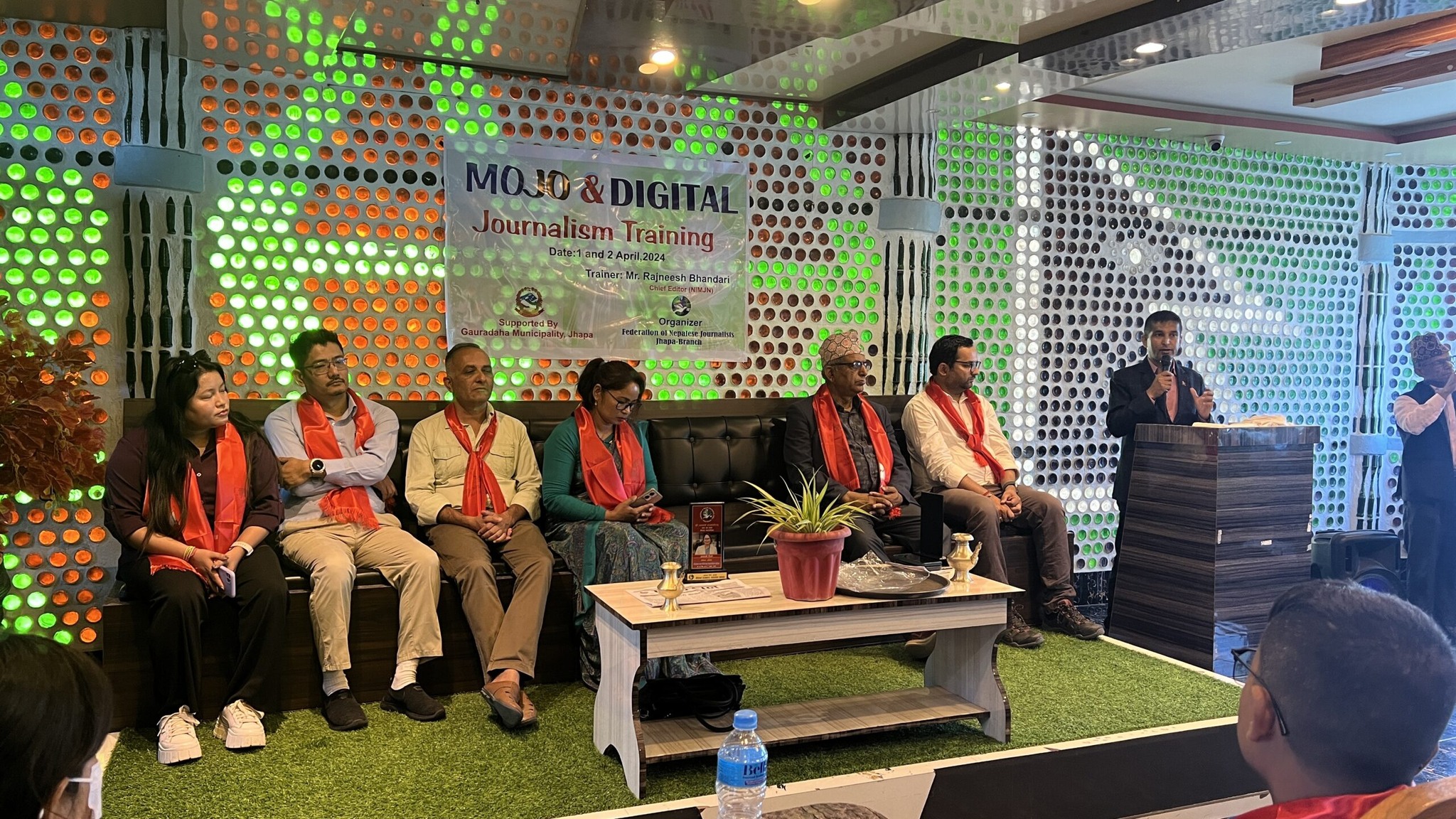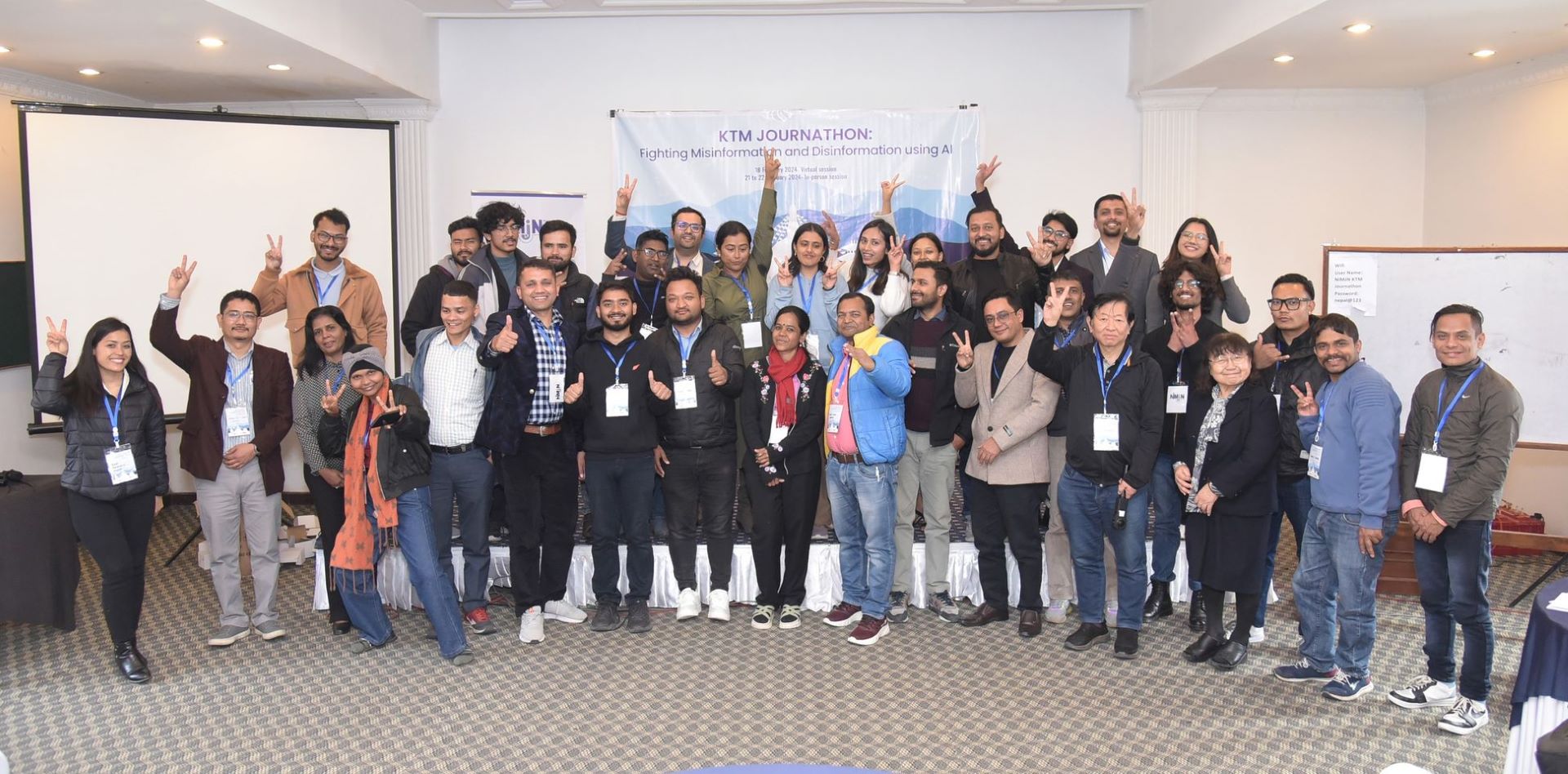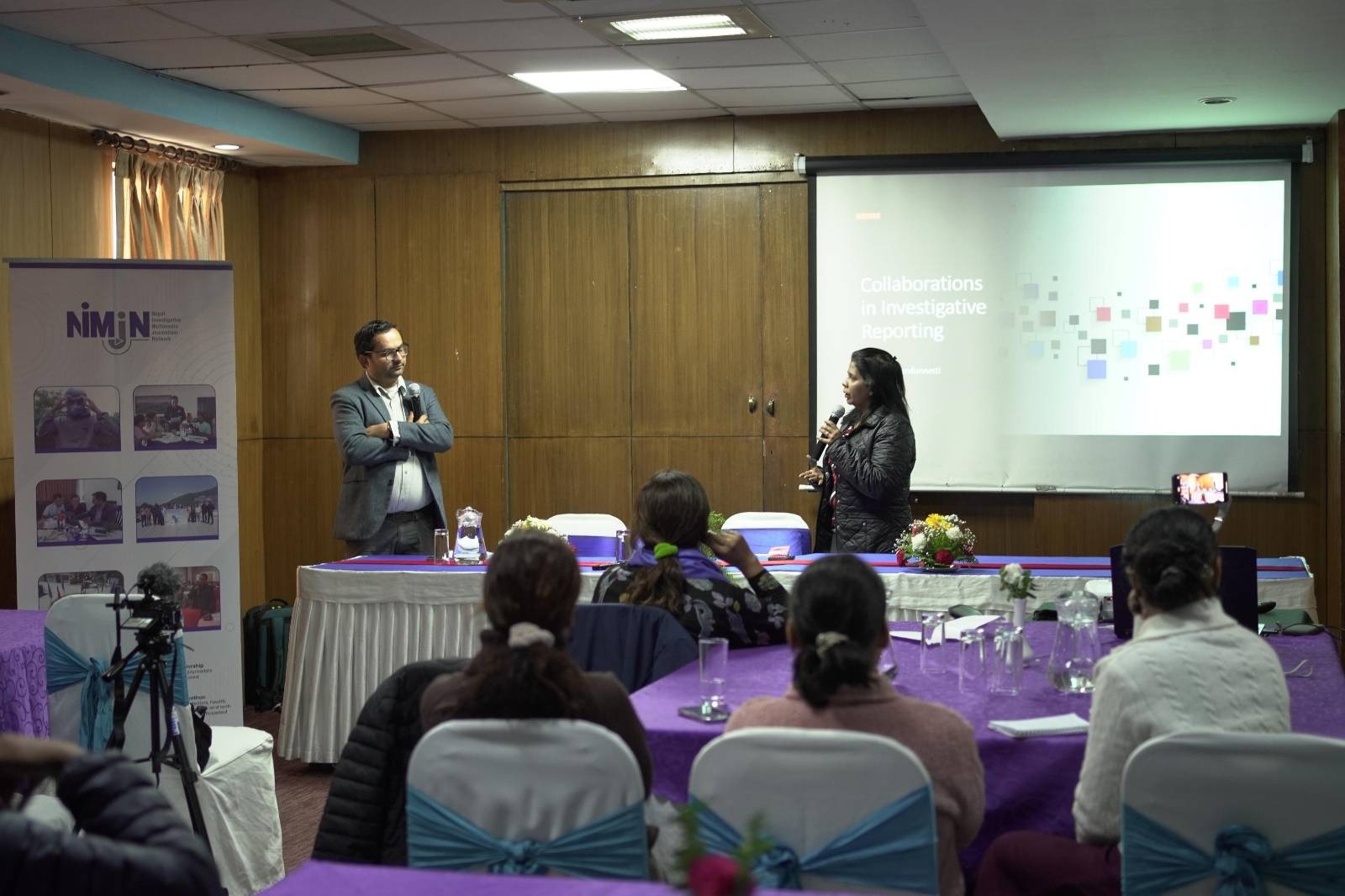Journalists from several media outlets and participants from seven different provinces discussed on the mental health and well-being of journalists in a one-day program organized by Nepal Investigative Multimedia Journalism Network.
NIMJN organized the ‘NIMJN Wellbeing Program: Let’s talk about the mental health of journalists’ event on January 13, 2023, at the Hotel Himalaya, Lalitpur. The program was supported by Humanity United.
During the event, journalists discussed about the major sources of their stress, grievances, and experiences while doing the job. They also shared their commitments and recommendations toward themselves and relevant stakeholders.
The event kicked off with a panel discussion titled ‘Status of mental health of Nepali Journalists’, in which Yubaraj Ghimire, editor at Deshsanchar, Poonam Paudel, editor at Earth News HD, and Durga Dulal, editor at Nepal Live were the panelists. NIMJN’s CEO and Chief Editor Rajneesh Bhandari moderated the session.
Ms. Poonam Paudel shared her experiences as a young female in the field, and the mental stress she had to endure while going out to the field to collect information as a woman reporter.
“...as a female journalist, the management team never asked about these mental health issues, they just want the work from us. If we spoke openly then there is a fair chance of losing a job…”
Mr. Durga Dulal focused on the significance of good management supporting the journalists by giving examples of his own place of work, where they paid their employees' full-time salaries even during the pandemic, and also allowed reporters to work from home.
"...mental pressure/mental issues would not become a problem if we can consult with the management on time in the office and take a stand for ourselves..."
Mr. Yubaraj Ghimire talked about the importance of having a culture of sharing mental health problems, and the importance of having feasible time to work on news and stories for journalists. He also highlighted the tendency of media owners not being sensitive/responsible towards the employees working inside, and shared the definition of humanity as “...a virtue linked with basic ethics of altruism derived from the human condition…”.
The journalists from provinces also shared their insights and experiences regarding the stress of the job, and mental health. The main concerns raised were about the stress of the job itself, the lack of backup from umbrella media organizations to support the journalists while dealing with threats due to the job, and the issues of timely salary from their media houses.
NIMJN also prepared a 4-point Letter of Commitment offering commitments on various aspects of the well-being of journalists. The main points included in the Letter of Commitment prepared by NIMJN include the commitments:
- To integrate the topic of the well-being of journalists into newsroom discussions, and to pursue collective efforts to create a system and culture of openness surrounding it
- To offer training resources related to emotional intelligence, resilience, mindfulness, active listening, and mental health literacy, for the management of occupational hazards and the mental well-being of journalists
- To create collaborated networks of key stakeholders for evidence-informed solutions
- To ensure accessibility and sustainability of well-being practices and systems for all
You can read the full version of the Letter of Commitment (in English and Nepali) here.
Along with NIMJN’s prepared Letter of Commitment, the participants also noted down some of their own recommendations on this issue.
Some of the major recommendations include:
- The issue of mental health should be considered a health problem
- The media sector needs to make policies and programs about mental health
- Group discussions on the issue of stress management are needed
- Editors and leaders of media houses need mental health-related training
- Government and media stakeholders need to make provisions for counselors and doctors
- Open discussion on mental health in newsrooms is required
- Provision of regular and adequate salaries for journalists needs to be updated
- Proper and adequate holiday provision
- Provision of various types of insurance for journalists by the relevant stakeholders
- Balanced and nutritious food
- A separate unit for hearing grievances in newsrooms
- Provision for financial saving and investment for journalists
The event also included two practical sessions on mental well-being. The first was ‘Managing your well-being as a journalist’ led by Dr. Bigya Shah, a psychiatrist and an assistant professor in the Department of Psychiatry, School of Medicine, at Patan Academy of Health Sciences. She discussed signs and causes of stress and practical exercises for stress management.
The second and final session of the day was the mini- anapana meditation session which included a brief introduction to the Vipassana meditation, followed by a 15-minute participatory meditation session.



